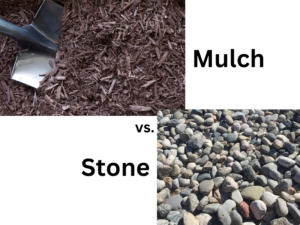
As landscaping and lawn care contractors, we understand the importance of having the right tools for the job, especially when it comes to achieving that crisp, well-defined edge for your lawn. One crucial decision homeowners often face is choosing between gas and electric string trimmers. In this blog post, we’ll compare the two options, weighing the pros and cons to help you make an informed decision for efficient lawn edging.
Power and Performance
Gas String Trimmers
Pros: Gas trimmers are known for their powerful engines, making them ideal for tackling thick and overgrown grass. They offer a higher torque, making quick work of demanding edging tasks.
Cons: While powerful, gas trimmers can be heavier and require more effort to handle. Additionally, they may produce more noise and emissions compared to electric counterparts.
Electric String Trimmers
Pros: Electric trimmers are generally lighter and easier to maneuver. They are quieter and produce zero emissions, making them an environmentally friendly choice. Modern electric models can provide ample power for regular lawn maintenance.
Cons: The power of electric trimmers may be limited compared to gas models, making them less suitable for heavy-duty edging in extremely thick grass.
Convenience and Ease of Use
Gas String Trimmers
Pros: No cords mean unrestricted movement, making gas trimmers convenient for larger lawns. They are not tethered to an electrical outlet, providing greater flexibility in reaching remote areas.
Cons: Starting a gas trimmer can sometimes be more challenging, requiring manual effort to pull-start the engine. They also require regular maintenance, such as fuel mixing and spark plug changes.
Electric String Trimmers
Pros: Electric trimmers are generally easier to start with a simple push of a button. They are low-maintenance, requiring minimal care compared to gas models.
Cons: The corded models are limited by the length of the power cord, which may require the use of extension cords. Cordless models have a limited runtime and may need recharging during longer sessions.
Cost Considerations
Gas String Trimmers
Pros: Gas trimmers are often more expensive upfront but may offer a longer lifespan with proper maintenance.
Cons: Operating costs include fuel and maintenance expenses, which can add up over time.
Electric String Trimmers
Pros: Electric trimmers are generally more affordable upfront, and corded models have lower operating costs as they do not require fuel.
Cons: Cordless models may require additional investment in batteries, which can increase the overall cost.
In the end, the choice between gas and electric string trimmers boils down to your specific lawn care needs. If you have a large yard with heavy-duty edging requirements, a gas trimmer might be the powerhouse you need. On the other hand, if you prioritize ease of use, low maintenance, and environmental friendliness, an electric trimmer – whether corded or cordless – could be the perfect fit. Assess your lawn’s size, thickness, and your personal preferences to make an informed decision that ensures efficient and effective lawn edging.



